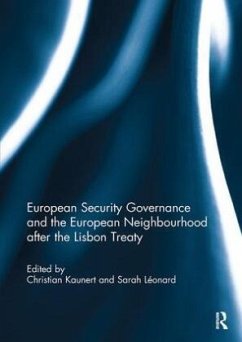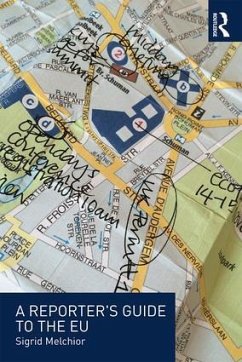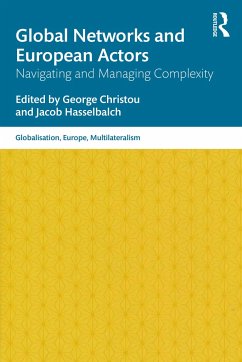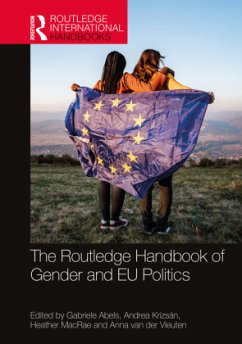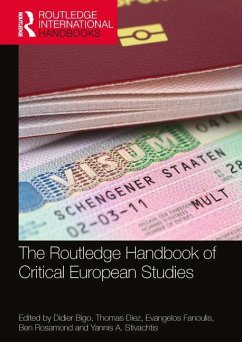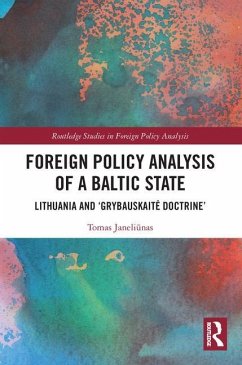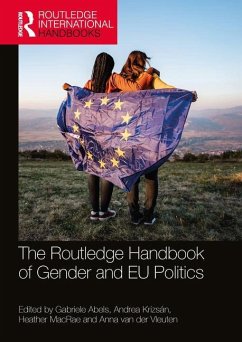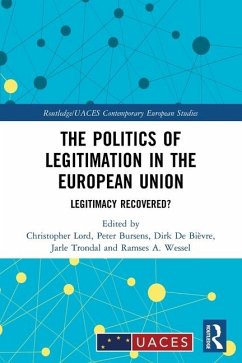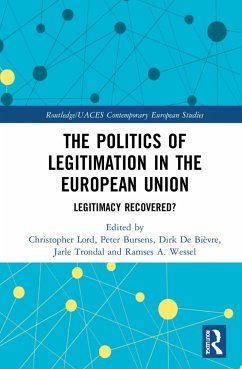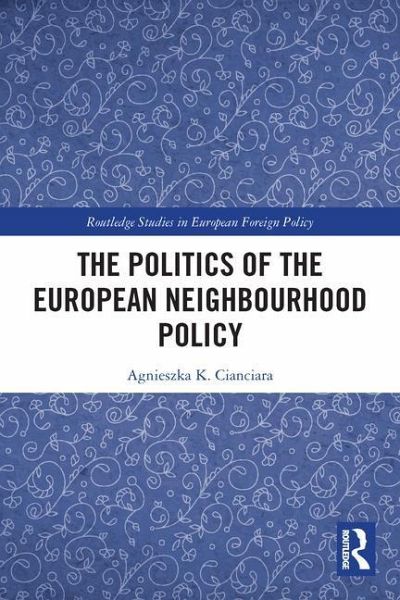
The Politics of the European Neighbourhood Policy
Versandkostenfrei!
Versandfertig in 6-10 Tagen
43,99 €
inkl. MwSt.
Weitere Ausgaben:

PAYBACK Punkte
22 °P sammeln!
This book examines the European Neighbourhood Policy (ENP) in the context of internal functions performed with regard to the European Union (EU) political system and its key actors.It argues that the ENP has been formulated not only in reaction to external challenges and threats, but also in response to EU internal legitimacy needs at systemic, institutional and actor level. Looking beyond governance approaches and the power of norms, this book follows a sociological approach to the politics of legitimation. Using Bourdieu's field theory, it bridges the rationalist-constructivist divide inhere...
This book examines the European Neighbourhood Policy (ENP) in the context of internal functions performed with regard to the European Union (EU) political system and its key actors.
It argues that the ENP has been formulated not only in reaction to external challenges and threats, but also in response to EU internal legitimacy needs at systemic, institutional and actor level. Looking beyond governance approaches and the power of norms, this book follows a sociological approach to the politics of legitimation. Using Bourdieu's field theory, it bridges the rationalist-constructivist divide inherent in much of ENP scholarship. While analyzing articulations of EU institutions in terms of narrative production, reproduction and reconstruction, it sheds valuable light on where the conflicting goals, ambiguity and incoherence stem from. By highlighting Developing Nations' responses and usages of ENP narratives for domestic and international legitimacy-seeking, the book calls for a more outside-in perspective on EU foreign policy. With the European integration project being increasingly contested, both internally and externally, this book provides a timely focus on the topic of legitimation and delegitimation dynamics with regard to EU foreign policy.
This book will be of key interest to scholars and students of European integration and EU foreign policy, and, more broadly, EU Studies and International Relations.
It argues that the ENP has been formulated not only in reaction to external challenges and threats, but also in response to EU internal legitimacy needs at systemic, institutional and actor level. Looking beyond governance approaches and the power of norms, this book follows a sociological approach to the politics of legitimation. Using Bourdieu's field theory, it bridges the rationalist-constructivist divide inherent in much of ENP scholarship. While analyzing articulations of EU institutions in terms of narrative production, reproduction and reconstruction, it sheds valuable light on where the conflicting goals, ambiguity and incoherence stem from. By highlighting Developing Nations' responses and usages of ENP narratives for domestic and international legitimacy-seeking, the book calls for a more outside-in perspective on EU foreign policy. With the European integration project being increasingly contested, both internally and externally, this book provides a timely focus on the topic of legitimation and delegitimation dynamics with regard to EU foreign policy.
This book will be of key interest to scholars and students of European integration and EU foreign policy, and, more broadly, EU Studies and International Relations.





